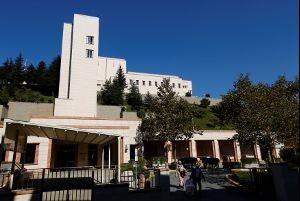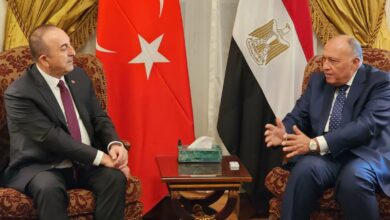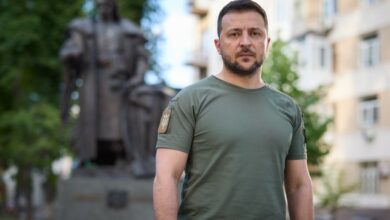
Turkey’s foreign minister said on Wednesday Ankara would not submit to “impositions” from the United States to resolve a feud which has seen the two NATO allies stop issuing visas to each other’s citizens.
However, President Tayyip Erdogan’s spokesman struck a more positive tone, saying he expected the crisis to be resolved soon following the arrival in Turkey of a US delegation for talks on repairing bilateral ties.
Earlier this month Washington suspended visa services after Turkey detained two Turkish nationals employed as U.S. consular staff. They are being held on suspicion of links to last year’s failed coup in Turkey, allegations rejected by Washington.
Ankara swiftly retaliated by suspending its own visa services in the United States, a move that hit the Turkish lira and stocks and unnerved investors.
The US delegation has laid out four conditions to solve the crisis, private broadcaster Haberturk reported, including a request that Ankara provide evidence related to the detentions.
“We will cooperate if their demands meet the rules of our constitution but we will not succumb to impositions and we will reject any conditions that we cannot meet,” Foreign Minister Mevlut Cavusoglu told a news conference on Wednesday.
The two people arrested by Turkey are a translator at the consulate in the southern province of Adana and a Drug Enforcement Administration (DEA) worker in Istanbul.
Erdogan’s spokesman Ibrahim Kalin said the talks with the United States were now moving in a “good direction”.
“I believe this crisis will be resolved soon,” he told state-owned TRT Haber.
“The US delegation does not have the authority to lift the visa suspension but they will communicate our views to Washington and, hopefully, the White House will take positive steps soon”.
Relations between Turkey and its Western allies have soured significantly since the July 2016 coup and the large-scale purges of the Turkish armed forces, state institutions, media and academia that followed.
Ankara blames the network of US-based Muslim cleric Fethullah Gulen for the coup and has repeatedly asked Washington to extradite him. Gulen, who has lived in Pennsylvania since 1999, has denied the charges and condemned the coup.
Turkey has sacked or suspended more than 150,000 people from their jobs on suspicion of links to the Gulen network, prompting crticism from rights groups, the United States and the European Union that Ankara is undermining free speech and democracy.
Additional reporting by Ezgi Erkoyun and Ali Kucukgocmen; Writing by Ece




